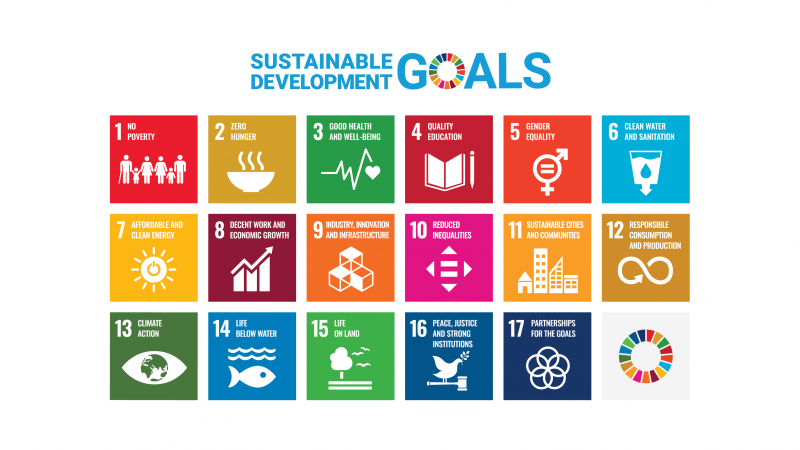The University of Westminster has published its Sustainable Development Goals (SDGs) report, outlining how the University has embedded SDGs into teaching, research and operations to help support a more sustainable society.

The 17 Sustainable Development Goals (SDGs) were created by the United Nations in 2015 to provide achievable aspirations to guide people and organisations on how to create a more sustainable future. Westminster adopted these SDGs in 2019, embedding them into teaching, research and operations, while using the goals to frame the University’s strategic decisions to support its commitment to being progressive, compassionate and responsible. In doing this, Westminster has been recognised as one of the top 15% out of over 1,400 universities globally for its work on contributing to these 17 SDGs. The report highlights the ways in which the University has worked to achieve each of these goals.
Among research taking place across the University, the Westminster Water Science Research Group has advanced sustainable water management, while Dr Sumita Ketkar, Senior Lecturer in the School of Organisations, Economy and Society in the Westminster Business School, has co-authored a policy brief with academics at the International Management Institute Kolkata (IMI-Kolkata) which provides practical steps to policymakers to help bridge the gender pay gap. Additionally, the Centre for Sustainable Road Freight, which the University is a partner member of, has produced ground-breaking research and policy proposals to help put the road freight sector on a zero-carbon trajectory.
The University has also embedded SDGs into teaching, by incorporating them into a variety of courses. Fashion courses have introduced sustainable fashion modules to inspire future designers to think about greener methods of designing. Additionally, International Relations students have been given the opportunity to take part in the prestigious annual British International Studies Associate Model NATO (North Atlantic Treaty Organisation) at the Foreign Commonwealth and Development Office, gaining insights into the world of diplomacy and international cooperation.
Westminster has also incorporated these SDGs into its operations, by offering scholarships and services to aid its students. Noreen Whyte, alumna of the Westminster Business School, has launched the Ava Whyte Scholarship for female students at the School who face financial difficulties during their studies. Additionally, Westminster offers Counselling and Mental Health Services, where students and colleagues can receive professional support to help them through a variety of issues.

Westminster students and colleagues have also worked together to contribute to the community, with successful projects such as the Cavendish Living Lab. The Quintin Hogg Trust-funded project is open to all Westminster students and uses the University campus as its very own laboratory. Through the project, the Westminster community have grown a garden on campus where they use food waste from onsite catering facilities to help grow vegetables to donate to local foodbanks.
Morgan Lirette, Sustainable Development Advisor at the University of Westminster, said: "The annual Sustainable Development Goals Report is a great source of joy for us in the Sustainability Team. Throughout the year we’re on the lookout out for case studies to feature in the report, and – when the time comes to piece it all together – we’re always blown away by the tremendous initiative regarding and commitment to sustainable development demonstrated right across our Westminster community. We welcome all colleagues and students to share their stories with us by reaching out to the Sustainability Team."
Find out more about Sustainable Development at the University of Westminster.


